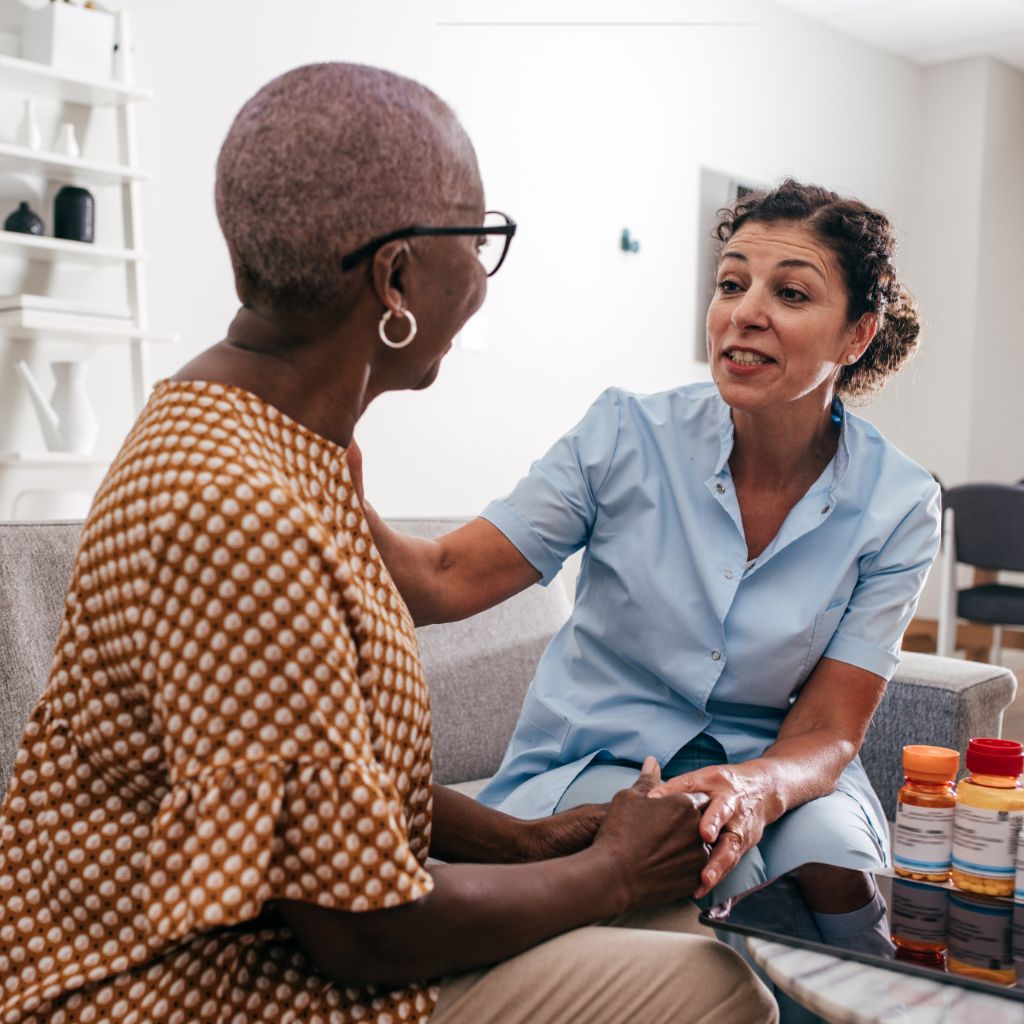The Role of Skilled Nurses in Home Care: How They Improve Patient Outcomes

Personalized Care Tailored to Patient Needs
Every patient has unique medical needs, and skilled nurses develop personalized care plans to ensure the best possible treatment. They assess the patient’s health condition, monitor progress, and adjust care strategies accordingly.
Skilled nurses play a vital role in managing chronic conditions by providing personalized, one-on-one care tailored to each patient’s unique needs. Whether addressing diabetes, heart disease, respiratory disorders, or other long-term health challenges, these professionals ensure patients receive the necessary support to manage symptoms effectively. Their dedicated attention fosters a strong patient-provider relationship, building trust and promoting open communication.
This individualized approach not only enhances the quality of care but also leads to better health outcomes, including faster recovery times and improved long-term wellness. By closely monitoring patients, skilled nurses can identify early warning signs of complications, adjust care plans as needed, and provide education on disease management, medication adherence, and lifestyle modifications.
Furthermore, this level of care empowers patients to maintain their independence and enjoy a higher quality of life. With compassionate, expert guidance, individuals with chronic conditions can feel more confident in managing their health, reducing hospitalizations, and experiencing greater overall well-being.
Advanced Medical Expertise at Home
Skilled nurses bring hospital-quality care into the patient’s home, reducing the need for frequent hospital visits. They are trained to perform various medical procedures, including wound care, IV therapy, medication administration, and post-operative care.
Having a skilled nurse at home ensures that patients receive immediate medical attention when needed, preventing complications and hospital readmissions. Their ability to manage complex medical conditions at home contributes to a safer and more comfortable healing environment for patients. Skilled nurses provide expert monitoring of vital signs, medication management, and wound care, ensuring that treatments are administered correctly and on time. They also educate patients and their families on managing chronic illnesses, recognizing warning signs, and promoting healthier lifestyles.
Beyond medical care, home nurses offer emotional support and companionship, which can significantly improve a patient’s overall well-being and recovery process. Their presence reduces the burden on family members, giving them peace of mind knowing their loved one is receiving professional care. Additionally, in-home nursing can be a more cost-effective alternative to prolonged hospital stays or frequent clinic visits. With compassionate, high-quality care delivered at home, skilled nurses play a crucial role in enhancing the quality of life for patients and their families.


Medication Management and Patient Education
One of the biggest challenges in home healthcare is medication adherence. Skilled nurses play a vital role in ensuring patients take the right medications at the right time. They educate patients and their families about proper dosages, potential side effects, and interactions with other drugs.
Beyond medication management, skilled nurses also provide valuable education on disease management, lifestyle modifications, and preventive care. By empowering patients with knowledge, they help improve long-term health outcomes and reduce the risk of complications.
Skilled nurses take a holistic approach to patient care, addressing not only immediate medical needs but also long-term wellness goals. They educate patients and their families on recognizing early warning signs, adhering to prescribed treatments, and making healthier lifestyle choices. This proactive approach helps prevent hospital readmissions and enhances overall quality of life.
Through continuous monitoring, patient education, and emotional support, skilled nurses play a vital role in promoting recovery, managing chronic conditions, and enhancing overall well-being.
Emotional and Psychological Support
Home healthcare is not just about physical well-being—it also includes emotional and mental support. Skilled nurses build meaningful relationships with patients, offering companionship, reassurance, and encouragement throughout their recovery journey.
Patients recovering at home may experience stress, anxiety, or feelings of isolation, which can slow down their healing process. Having a skilled nurse who listens, understands, and provides compassionate care not only improves their physical well-being but also helps restore their confidence and overall mental health. A holistic approach to healthcare ensures that patients receive comprehensive support, addressing both their medical needs and emotional well-being.
Furthermore, professional in-home care provides peace of mind to family members, knowing that their loved ones are in capable hands. With personalized attention and a focus on comfort, skilled nurses and caregivers create a safe and supportive environment where patients can heal with dignity and confidence, fostering a faster and more positive recovery experience.


Reducing Hospital Readmissions and Healthcare Costs
One of the most significant benefits of skilled nursing care at home is the reduction of hospital readmissions. By closely monitoring patients, detecting early signs of complications, and providing timely interventions, skilled nurses help prevent unnecessary hospital visits.
Home nursing care also lowers overall healthcare costs by minimizing the need for extended hospital stays and emergency room visits. This cost-effective approach benefits both patients and their families, ensuring high-quality care in a familiar and comfortable setting. Additionally, it provides personalized medical attention tailored to each patient’s needs, promoting faster recovery and improved health outcomes. Patients receive professional care while maintaining their independence, dignity, and emotional well-being. Home nursing also reduces the risk of hospital-acquired infections, offering a safer alternative for those with chronic conditions, post-surgical recovery, or mobility limitations. This compassionate care fosters peace of mind for families.
Conclusion:
Skilled nurses play an essential role in improving patient outcomes through personalized care, advanced medical expertise, medication management, emotional support, and cost-effective healthcare solutions. Their presence in home care not only enhances recovery but also empowers patients to lead healthier, more independent lives. Choosing skilled nursing services is a step toward better health, comfort, and peace of mind for both patients and their families.




